AARP Hearing Center

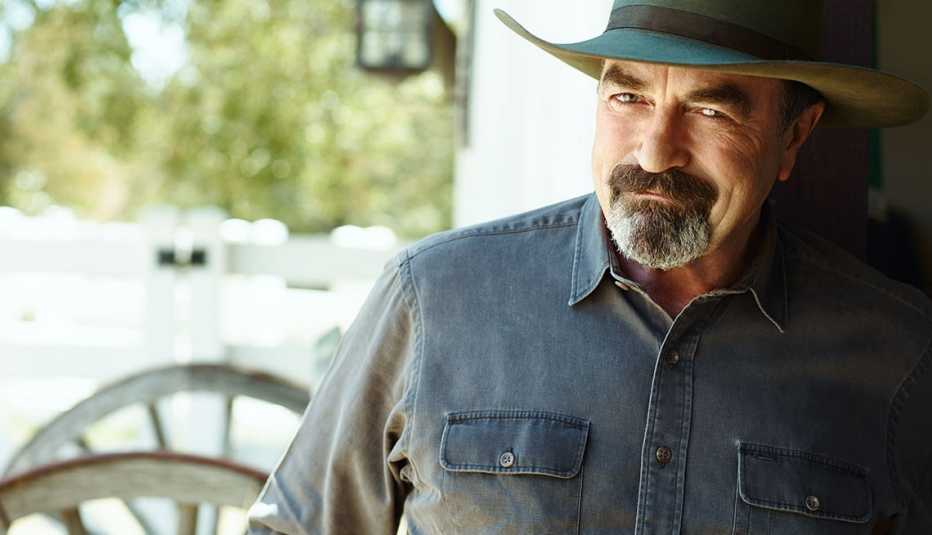
Tom Selleck is motoring up a paved road on his ranch in Hidden Valley, California, his ride a dusty Kawasaki ATV with a camouflage paint job and a seat custom-built to accommodate his 6-foot-4 frame. First stop today is a wooden covered bridge that arches over a thin, burbling creek in the gully below. "This is my rehab bridge," says Selleck, 70, who stars in both the CBS hit drama Blue Bloods and the top-rated Jesse Stone series of TV movies. After a hip replacement two years ago, Selleck threw himself into the construction of this crossing, moving beams and bolting trusses as an unconventional form of physical therapy.
Since buying Dean Martin's 65-acre estate back in 1988, Selleck has found that maintaining the hilly, wooded property does wonders for his body, his psyche and his wallet. "I work this ranch every day," he says. "I do the grunt jobs because it saves me money. And it's good for my head." For someone who enjoys his professional success but bristles at the ambiguity of fame, Selleck's home and its attendant concerns ground him: "This ranch is a great counterpoint to the acting business, which is an abstraction. You do something, it's up on a piece of film, and everybody argues whether it is good or bad. You dig a hole and plant an oak tree — and I've probably planted a thousand of them — it's real. It's there, and you can watch it grow. It's a lot different from being famous, and it keeps me sane."
Selleck's clear-eyed outlook made him a perfect fit for the role of Frank Reagan — a taciturn police commissioner and the head of a noisy Irish clan — in Blue Bloods. Though taking the job meant commuting to New York, where the series is filmed, Selleck was drawn to the show because of an extended scene in the pilot script depicting a Sunday meal shared by four generations of Reagans. That spirited confab became a staple of the show. "The best thing about family dinner was that it wasn't The Waltons," says Selleck, a family man with two grown children. "The characters argue and are at each other's throats."
According to Bridget Moynahan, who plays Reagan's daughter, even on the first day of shooting, Selleck took the paternal aspects of his character to heart. "He fell into that dad role immediately," says Moynahan, who noticed that her TV father took pains to set an example by being punctual, professional and as ready to hash out a scene with his costars as he was to keep the mood light: "He's the one at the table telling silly jokes. There's a playful side to him as well."
But laid-back charm and a face that the camera loves cannot define Selleck's staying power. Now in his fifth decade of show business, he has won an Emmy and a Golden Globe, and had starring roles in a handful of blockbuster films such as Three Men and a Baby and its sequel. But acting wasn't a given when he was growing up in the San Fernando Valley. "I never did school plays. I had no interest," says Selleck, who aspired to become a professional athlete. He considers it a life triumph that in his last year at the University of Southern California, he landed a basketball scholarship; he was ultimately dwarfed, though, by his taller, heavier teammates. "I was pretty good, but I wasn't good enough," Selleck recalls.
Selleck had a backup plan, however. To help pay his tuition, he did a couple of TV commercials and made a pair of appearances on The Dating Game. "Humiliating and embarrassing," he says, wincing at his game show debacle. "I lost. Twice. I wasn't particularly funny or glib." Yet he was offered a spot in the 20th Century Fox New Talent Program and began to pick up the tools of his future trade. Nearly two years into the program, he took a leave to spend six months of active duty in the California Army National Guard. When he returned, he was dropped from the Fox program. It was too late for the rejection to register as an omen: He'd committed himself to an acting career.
When Selleck talks about landing his breakthrough role in Magnum, P.I. as a Vietnam vet piecing together a career as a private investigator in Honolulu, he takes pains to mention that he was in his mid-30s and had by then had his hopes for a regular gig repeatedly dashed: He had starred in six TV pilots that didn't sell. When Magnum premiered in 1980, what looked to many like overnight success was, in Selleck's mind, a long-fought struggle. But in truth, it came at the right time. "The luckiest thing that happened was that I didn't get a real job until I was 35," says Selleck, noting that during the 10-year stretch between going nowhere and becoming a hot property he constantly took acting classes. "When I was 25, I looked 35 but sounded 15. There are a lot of very good actors who make it as younger leading men but don't graduate — because the audience won't accept them as grown up."

































































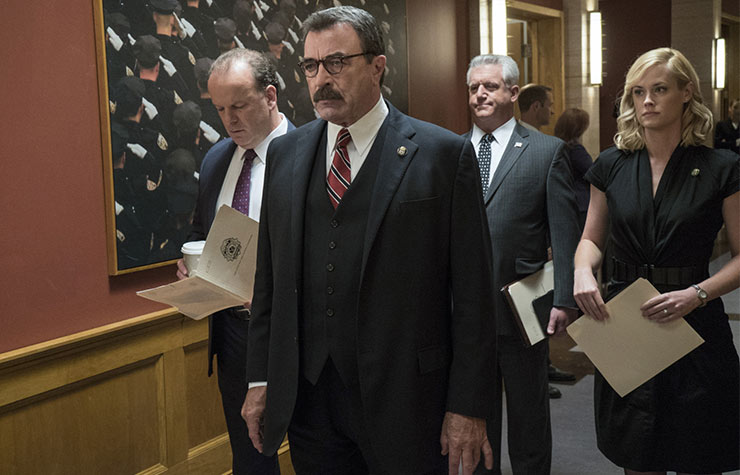


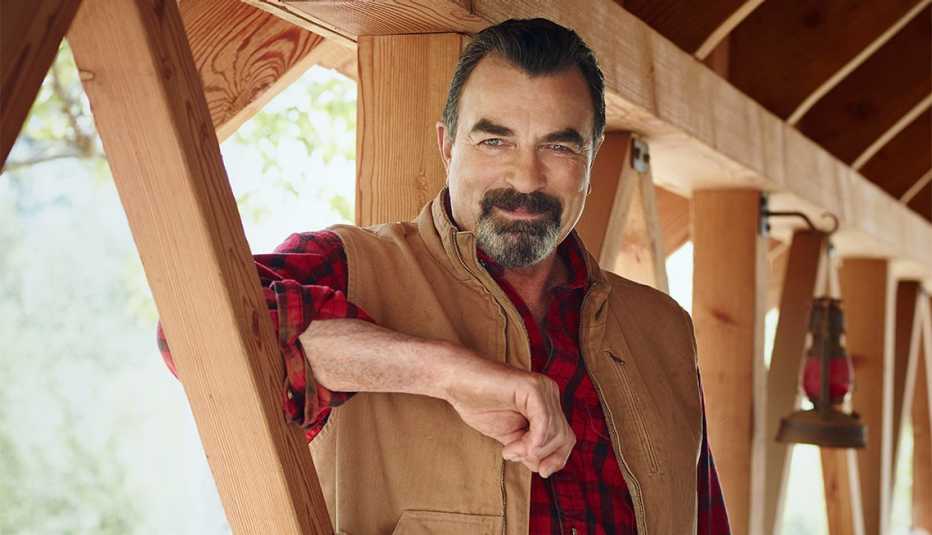
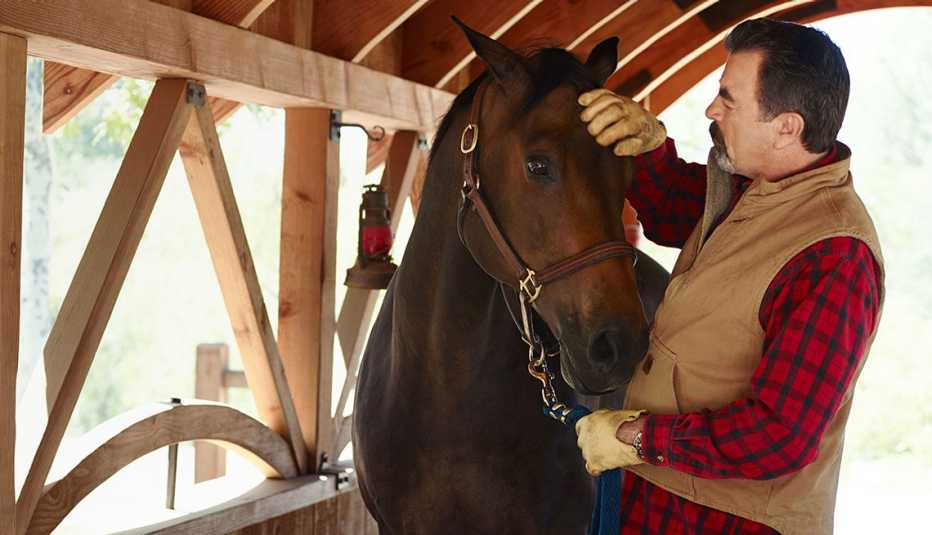
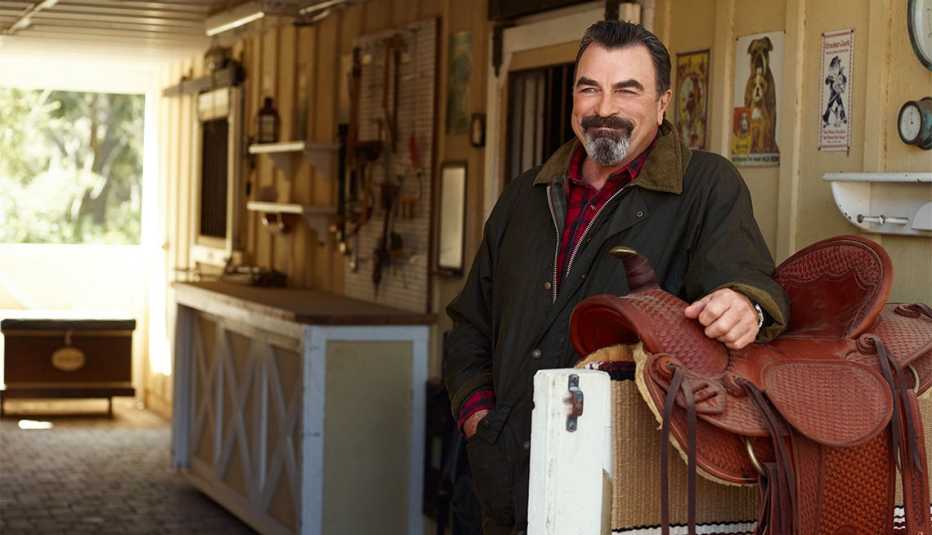
More From AARP
8 Celebrities Still Doing What They Love After 90
Catch up (if you can!) with Mel Brooks, Rita Moreno, Dick Van Dyke and more